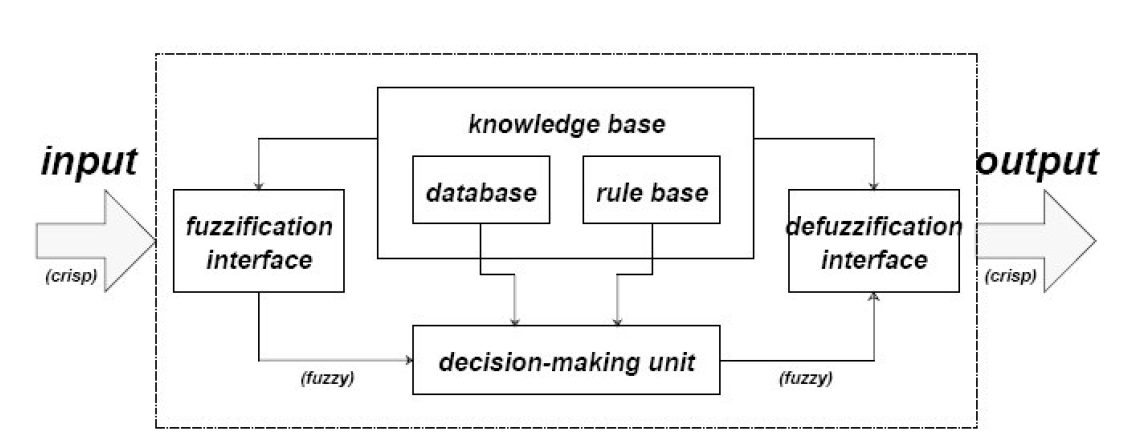Adaptive neuro fuzzy inference system
As an adaptive neuro-fuzzy inference system - ( ANFIS ) is referred to in neuro computer science an artificial neural network, which is used for representation of different fuzzy inference mechanisms - used - ie mechanisms for logical closing of fuzzy sets. Common mechanisms are Takagi - Sugeno controller and Tsukamoto controller. The name of an ANFIS network is derived from the highest polynomial degree in the THEN part of the control algorithm from (eg ANFIS first degree).
ANFIS -based systems combine the principles of neural networks with those of fuzzy logic and so combine the advantages of both systems:
- Processing involving linguistic (natural language ) aspects of information
- Decisions based on the degree of uncertainty
- Ability to learn
Architecture
In general, a ANFIS be divided into five stages. If it is known that the Takagi Sugeno controller has n input variables ( x1, ..., xn ) and m rules, these stages have the following tasks:
Example
Now a simple Sugeno - Takagi - controllers with two inputs and two rules are observed:
IF P11 (X1) and P12 (x2) THEN f1 ( x1, x2) IF P21 (X1) and P22 (x2) THEN f2 ( x1, x2) The ANFIS that implements this control will look like this:
Learning
One of the known learning algorithms for a ANFIS is the so-called hybrid algorithm that accept for example during the forward phase of the back-propagation, the premise of parameters to be constant, and can optimize consistent parameters of the least squares method, while considered in the reverse phase, the consequent parameters to be constant, and the premise parameters are optimized using the gradient method.









